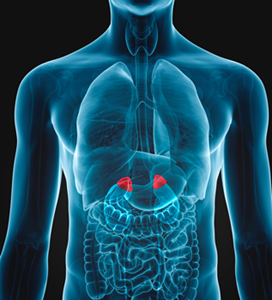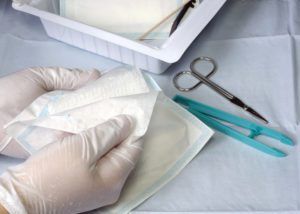
Wound Care
Wounds require special care and attention to ensure a complication-free healing process. If you are wounded – perhaps due to an accident or medical procedure – you need the care of medical professionals trained and experienced in wound treatment and management. A wound care provider will clean your wound and change its dressings, and oversee […]
Continue Reading...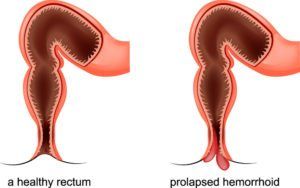
Rectal Prolapse
A rectal prolapse is an abnormal protrusion of the rectum through the anus. A prolapse may be very small, or it may extend several inches. It is treated medically with increased fiber intake and the use of laxatives however, most cases of rectal prolapse will require surgical repair. Did you know… that rectal prolapse is closely associated […]
Continue Reading...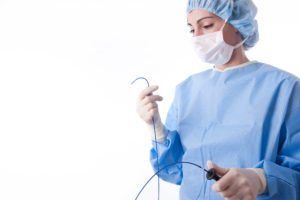
Radiofrequency Ablation (RFA) Therapy
Radiofrequency ablation (RFA) therapy has been shown to be safe and effective for treating Barrett’s esophagus. Radiofrequency energy (radio waves) is delivered via a catheter to the esophagus to remove diseased tissue while minimizing injury to healthy esophagus tissue. This is called ablation, which means the removal or destruction of abnormal tissue. While you are […]
Continue Reading...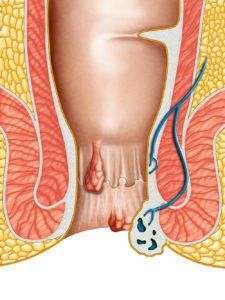
Rectal Bleeding
Rectal bleeding can refer to any blood that passes from your anus, although rectal bleeding is usually assumed to refer to bleeding from your colon or your rectum. Rectal bleeding may show up as blood in your stool, on the toilet paper or in the toilet bowl. Blood that results from rectal bleeding can range […]
Continue Reading...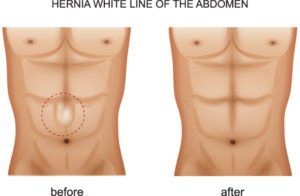
Hernias
A hernia is the bulging of an organ through a tear in the tissue or muscle that is supposed to hold it in place. Most are found in the abdomen, however, they can also be found in the groin and even upper thigh area. Surgery is nearly always recommended to avoid further complications, such as […]
Continue Reading...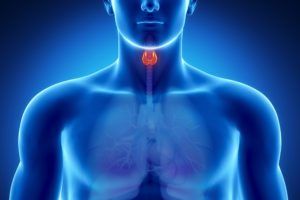
Thyroid Surgery
Thyroid surgery is surgery performed to remove a malignant or benign tumor, although other conditions like gland enlargement or excessive hormone production (hyperthyroidism) may also indicate the need for an operation. Did you know… an estimated 1 in 20 people have some type of thyroid disorder or abnormality? Millions of people in the U.S. are […]
Continue Reading...
Skin Cancer
Many people develop skin cancer in their lifetimes. It is by far the most curable form of cancer though early detection is important for a positive outcome. Skin cancers often vary in appearance from person to person, making them difficult to identify to the untrained eye. Did you know… that skin cancer is the most frequently […]
Continue Reading...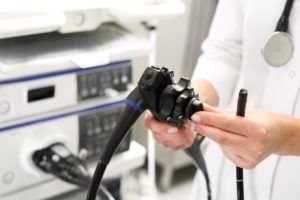
Stomach Cancer Surgery
When a patient is diagnosed with stomach cancer a gastrectomy or gastric resection are operations that remove part or all of the stomach. These procedures are typically indicated for the purpose of treating gastric bleeding, inflammation, ulcer disease and benign stomach tumors. In some cases, stomach surgery is enough to cure early stages of gastric […]
Continue Reading...
Pilonidal Cyst
Pilonidal disease, also known as a pilonidal cyst is a skin growth located at the tailbone. This growth contains skin and hair and is common in the United States, with more than 200,000 cases each year. While this disease resolves within a few weeks, this disease is characterized by a chronic recurrence of the cyst. […]
Continue Reading...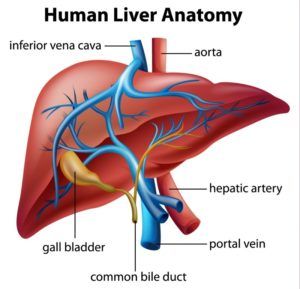
Liver Biopsy & Resection
The liver is a vital organ plays a very important role in processing nutrients, creating new proteins, and removing wastes that the kidneys are incapable of eliminating. When a person’s liver is not functioning properly, a liver biopsy may be necessary to find out why. During a liver biopsy, a general surgeon will remove small […]
Continue Reading...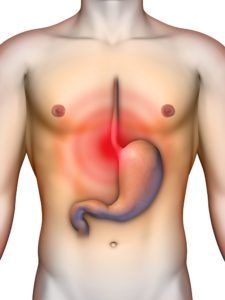
Anti-Reflux Surgery, Nissen Fundoplication
Acid reflux is a condition in which acid from the stomach is pushed into the esophagus, resulting in heartburn. Other symptoms may include regurgitation, persistent cough, sore throat or vocal hoarseness. Though nearly everyone will experience acid reflux at some point in their lives, people who have reflux symptoms two or more times per week […]
Continue Reading...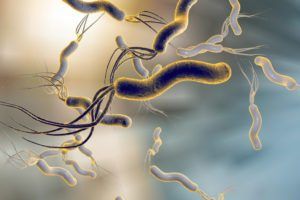
H. pylori Bacteria
H. pylori is a common type of bacteria that grows in the digestive tract and has a tendency to attack the stomach lining. It infects the stomachs of roughly 60 percent of the world’s adult population. H. pylori infections are usually harmless, but they’re responsible for the majority of ulcers in the stomach and small intestine. The “H” in the name is short for Helicobacter. […]
Continue Reading...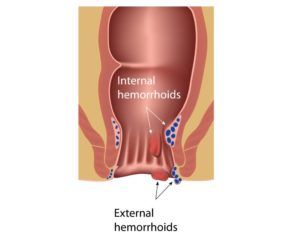
Hemorrhoids
Hemorrhoids are incredibly common, with more than 3 million cases each year. They’re essentially swollen veins in the lowest part of your rectum and anus. Hemorrhoids are also known as piles. They become incredibly irritated when a person has a bowel movement. They’re one of the most common reasons for rectal bleeding and typically clear […]
Continue Reading...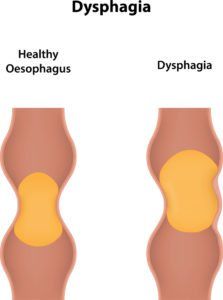
Dysphagia
Esophageal dysphagia refers to the sensation of food sticking or getting hung up in the base of your throat or in your chest after you’ve started to swallow. Persistent dysphagia may indicate a serious medical condition requiring treatment. Dysphagia can occur at any age, but it’s more common in older adults. The causes of swallowing […]
Continue Reading...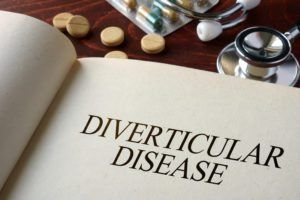
Diverticulosis & Diverticulitis
Diverticular disease is an umbrella term used to refer to two separate colon disorders – diverticulosis and diverticulitis. In diverticulosis, pouches form and bulge within the colon, which usually does not cause symptoms. Diverticulitis occurs when these pouches become blocked with waste materials, causing them to inflame and become infected. Diverticulitis usually causes noticeable symptoms, […]
Continue Reading...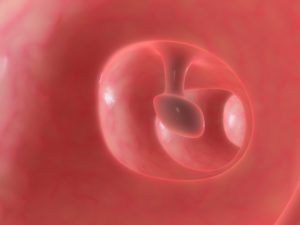
Colon Polyps
Colon polyps are benign growths that occur on the insides of the lower intestine. Though these small lumps of tissue are usually harmless, some may be pre-cancerous. Less than 1 percent of all colon polyps will turn into colon cancer, yet it is still important to remove them as a preventative measure. When polyps are […]
Continue Reading...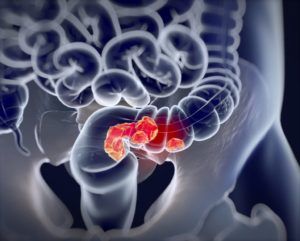
Transanal Excision
The transanal excision procedure is used to treat patients with early colorectal cancer. This procedure was designed to preserve the function of the sphincter in colorectal cancer patients and eliminate any fecal incontinence. Did you know? The transanal excision works on stage 1 rectal cancer that’s located near the anal opening, but hasn’t spread to […]
Continue Reading...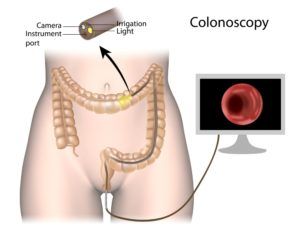
Colonoscopy
A colonoscopy is a procedure that allows a general surgeon to view the inner lining of a patient’s colon and rectum. The procedure is performed using a thin, flexible tube (a colonoscope) that is slowly guided through the colon. The end of the colonoscope is lighted and includes a camera that transmits images on a […]
Continue Reading...
Colorectal Cancer Screening
Several tests have been developed to help general surgeons screen for colon cancer. Since the majority of all colon cancers begin as polyps along the intestinal wall, these tests are specially designed to either spot growths in the lower intestine or otherwise detect the presence of blood in a person’s stool. Each test offers advantages […]
Continue Reading...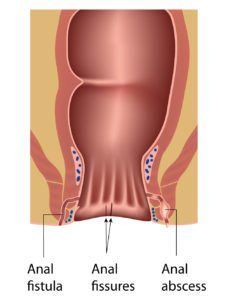
Anorectal Abscesses and Fistulas
An anal abscess is a fluid-filled cavity usually caused by an infection of the anal glands. These glands can become infected if they are clogged with fecal matter or any type of foreign substance. Some people with anal abscesses – approximately 50% – will also develop an anal fistula, which is characterized by a tunnel […]
Continue Reading...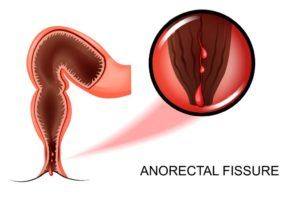
Anal Fissures
Anal fissures are tears that occur in the membranes on the inside and around the anus. They are often brought on by health issues or trauma to the anal canal. Examples include childbirth, passing hard stools, constipation, frequent diarrhea or inflammatory bowel disease. While most anal fissures are not serious and eventually heal on their […]
Continue Reading...
Biopsy (All Types)
Your skin is the largest and most visible organ in your body, working hard to protect you from your environment. Though it may not be treated with as much attention as other major organs, such as the heart and liver, the skin plays an essential role in overall health. It is important to be vigilant […]
Continue Reading...
Barrett’s Esophagus
Barrett’s esophagus is a disease affecting the lining of the esophagus, the swallowing tube that carries foods and liquids from the mouth to the stomach. It is caused by injury to the esophagus from the chronic backwash of stomach contents, like acid and enzymes, that occurs with abnormal reflux. Once a person has Barrett’s esophagus, it may […]
Continue Reading...
Abscess Drainage
An abscess occurs when bacteria accumulate beneath the skin, resulting in the formation of pus. Eventually, the pus and bacteria create a raised pocket that may continue to grow until drained and treated. Also known as boils, abscesses are easily treated by a general surgeon in the comfort of the doctor’s office. Abscess I&D (incision and drainage) is quick, simple, and […]
Continue Reading...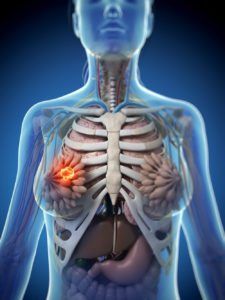
Breast Disease
No one wants to be told they have breast cancer, but for those who do receive the diagnosis, treatment options have never been more effective than they are today. While breast cancer treatment usually entails multiple therapies, surgery is often recommended to remove cancerous tissues from the breast. Breast operations at Mat-Su Surgical include both […]
Continue Reading...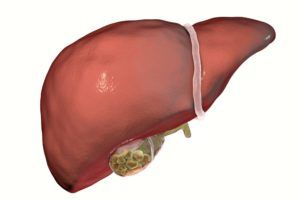
Gallbladder Disease (Cholecystectomy)
The gallbladder is a small organ that stores a substance called bile. Bile helps to digest fatty foods. Under certain conditions, the gallbladder can begin to malfunction. Oftentimes, this results in the development of small crystallizations known as gallstones. Sometimes the gallbladder does not function properly, resulting in pain, even when no gallstones are present. […]
Continue Reading...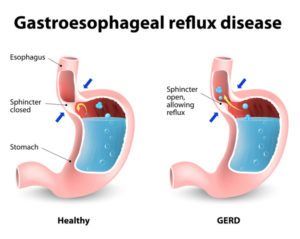
GERD -Gastrointestinal Reflux Disease
Gastrointestinal reflux disease, or GERD, is condition occurring in people of all ages, including infants and children. It occurs when lower esophageal sphincter relaxes and fails to keep contents within the stomach. It may be necessary to consult with a general surgeon if a person experiences persistent reflux. After discussing a person’s symptoms and conducting […]
Continue Reading...

